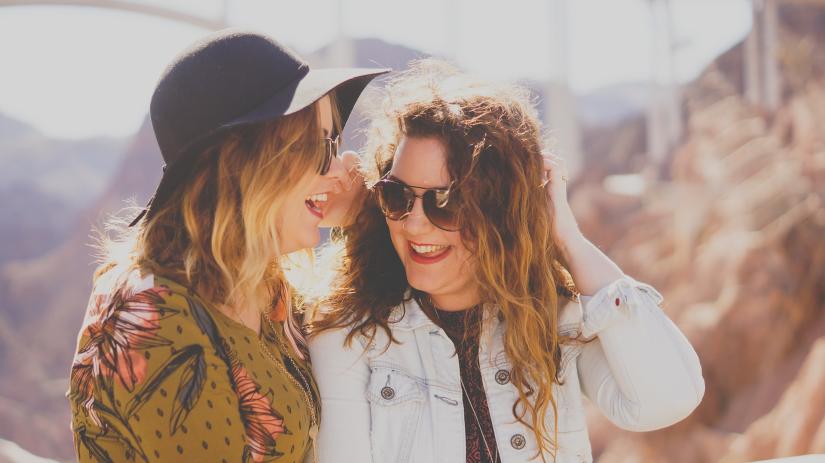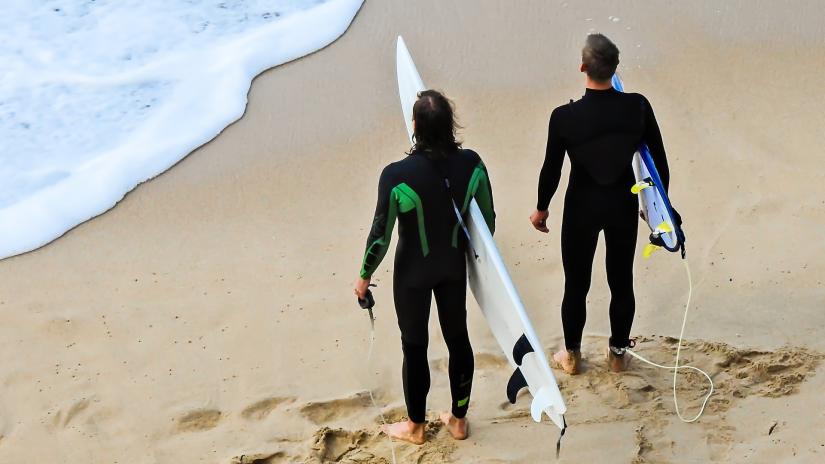How can we get better at making new friends? The answer: vulnerability, trust and time.

Image: Pixabay
If you’ve ever tried to make new friends as an adult, you’ll probably see why loneliness is at an all-time high. Making new friends feels just plain hard.
In school, making friends can be as simple as going on the monkey bars together. But as adults, making, developing and maintaining friendships can be much more difficult.
This matters, because we need friends. And while old friends are golden, nothing stays the same forever. Old friends move away, or have their time taken up by child-rearing or their careers. Without action, loneliness can quietly grow around you. It’s worth taking seriously, because evidence now suggests chronic loneliness can be lethal – the equivalent impact of 15 cigarettes a day on mortality rates.
It’s not just you, either. In many countries, loneliness is at epidemic proportions. And that was before COVID-19 made it much harder for us to see our friends.
The challenge of trust
Before COVID, around a third of Australians reported feeling at least one episode of loneliness. Since COVID brought widespread disruption to our work and social lives, loneliness has soared. Surveys now find over half (54%) of Australians report experiencing greater loneliness since the start of the pandemic.
As we reach for a new COVID-normal, it’s worth taking stock of your friendships – and assess whether you feel your social life is fine, or could use a little help.
When researchers interviewed adults about making friends in a recent study, the most important challenge cited was a lack of trust. That is, people found it harder to put their trust in someone new and fully invest in them as a friend compared to when they were younger.
Perhaps that’s why many people try to keep their circle of old friends as long as possible, given the trust they may have built up over many years.
Who found it harder? Women were more likely than men to say they didn’t make new friends easily because they struggled to trust others.
So what is it about adulthood? Well, as adults, we have greater self-awareness than children. While that is often a positive, it also means we’re more aware of the risks of being judged by others, of not being liked, of being rejected, and of being hurt. Or perhaps it just means we’ve been through high school and our 20s.
If we’ve had previous rejections as friends or suffered a breach of trust, we may find it harder to be trusting of others in the future. To trust a new friend means opening ourselves up and being vulnerable, just as we do in relationships.

Building new friendships requires vulnerability, trust and time. Image: Pixabay
Friendships need time
After the trust issue comes time. “Lack of time” was the second-most common reason people gave after “lack of trust” when asked why they found it hard to make friends as adults.
This won’t be news to many of us. When we have demanding work schedules, very involved family lives or a combination of the two, our time for investing in friendships drops. Even when we meet a promising new friend, it can be hard to carve out time to invest in it. This is a bigger problem for older adults, given most people find their obligations increase with age.
How long does it actually take to make friends? It shouldn’t surprise us that closer friendships take longer to build than casual acquaintances. US researchers have tried to quantify this, estimating it takes roughly 50 hours of shared contact to move from acquaintances to casual friends. To be a close friend? More than 200 hours.
What’s more, the hours you spend together need to be quality. While you may well put in the time with work colleagues, professional interactions don’t count for much. To develop a new friendship, you need personal connection. It doesn’t have to be an intimate conversation to strengthen a friendship. Casual check-ins and joking around can be just as important.
Shared pursuits can help cement new friendships. Getty Images
There are many other barriers stopping us from having the friendships we want. This can include having an introverted personality, health barriers, personal insecurities, or maintaining a formal facade and not allowing potential friends in.
Older people are more likely to cite illness and disability as a barrier to socialising, while younger adults are more likely to be stopped by introversion and fears of rejection.

Shared pursuits can help cement new friendships. Image: Pixabay
How can we get better at making friends as adults?
It’s entirely possible to overcome these barriers as adults and build meaningful, long-lasting friendships. We don’t have to accept loneliness as inevitable. And while you might think everyone else is having a great social life, remember loneliness is widespread.
So how do you do it?
Build friendships for ten minutes a day
You don’t have to be climbing mountains or bonding intensely over a shared hobby to solidify a new friendship. If you put in ten minutes a day, you can maintain existing friendships and build new ones. Send a text, forward a meme, add to the group chat or give someone a quick call. Don’t get caught up on how much effort, energy and time goes into building friendships. Ten minutes a day may be all you need.
Make the most of any quality time
When you do get to properly spend time with a friend or acquaintance, make the most of it. Avoid distractions if possible, keep Instagram for the couch at home, and be present with your new friend.
Lean into your vulnerability
We’re often scared by the idea of being vulnerable. I think we should embrace it. Remember you are in control of how much you trust and how much you open up. If you struggle with trust, consider sharing personal information slowly, rather than all at once.
Yes, there is a risk in being vulnerable – but there is also the potential to connect on a meaningful level with another person who may very well become a good friend. And that is a fine reward.![]()
Anastasia Hronis, Clinical Psychologist, University of Technology Sydney
This article is republished from The Conversation under a Creative Commons license. Read the original article.

